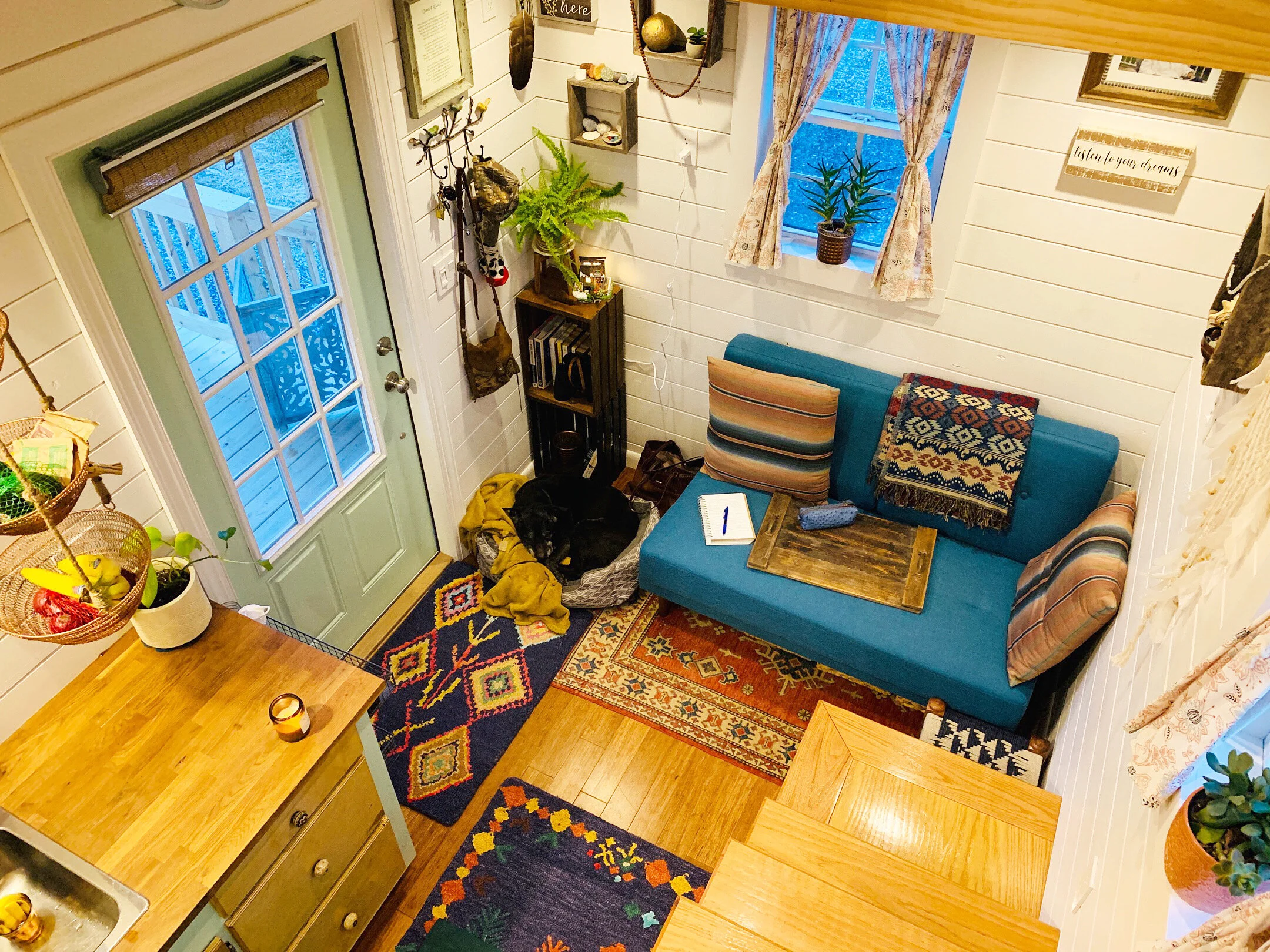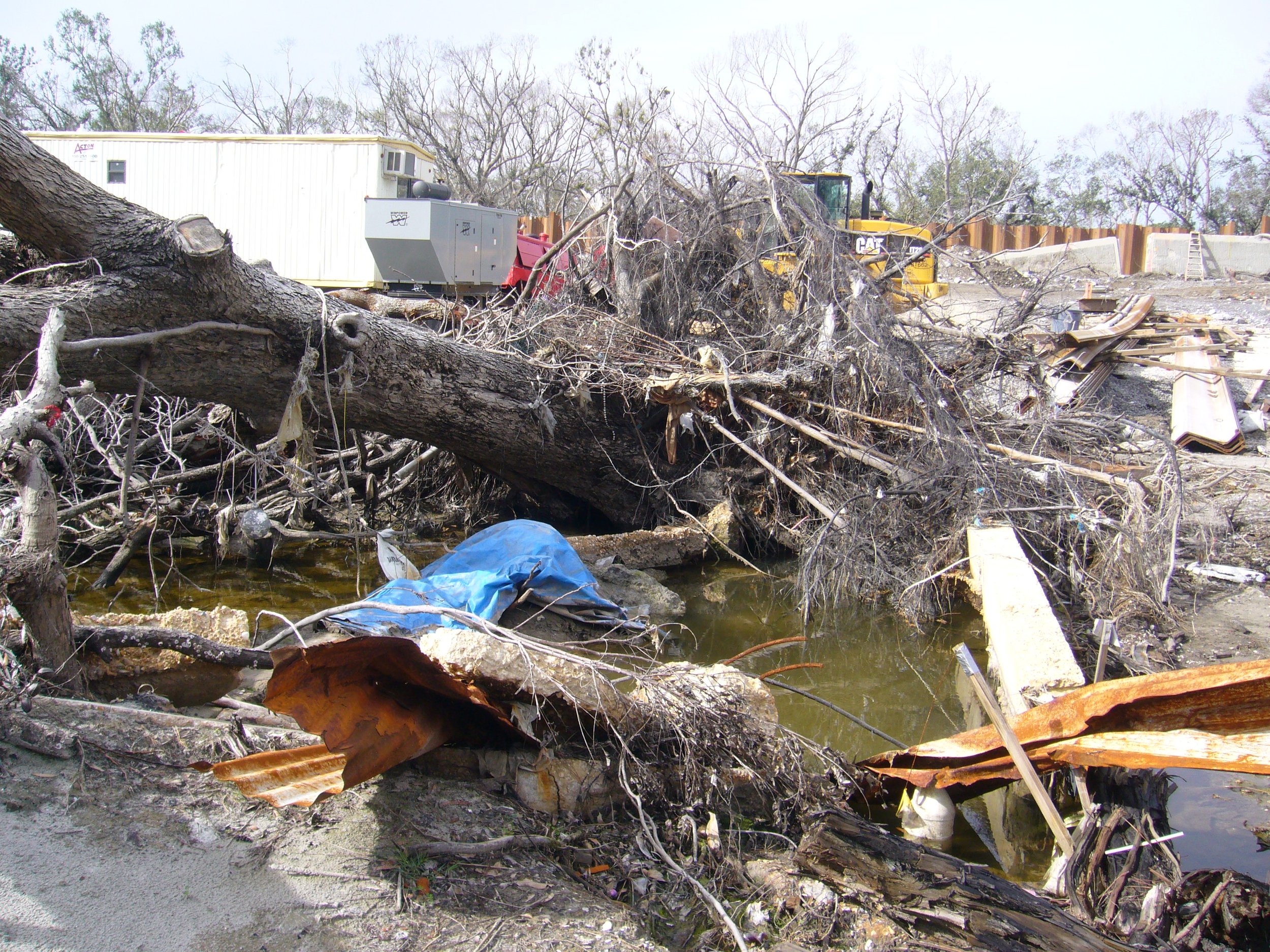journey of "egret" the tiny farm house
/Why would we make a week-long journey from West Virginia just to pick up a little tiny house in southern Louisiana? It was more than just that the tiny house was cute. It also had a lot to do with the time I spent in Louisiana years ago - a place that irrevocably shaped the direction of my life.
In 2005, I witnessed an event that would change my life forever: Hurricane Katrina. I was just entering college at Tulane University in New Orleans, Louisiana and I vividly recall my dad looking at the weather report on the TV and saying, “it looks like that thing is heading right for us.” Move in day turned into a mandatory evacuation. I ended up staying with my brand new roommate, who lived about an hour southeast of New Orleans. In true Louisiana fashion, the day we evacuated I helped her family hatch baby alligators. But in the weeks, months, and years following Katrina’s landfall, Louisiana opened my eyes to our world and how we impact it.
I enrolled in a couple environmental science classes, one specifically on natural disasters. As part of the class, we went to the levee breaches I saw how much devastation there really was: houses moved not just off their foundation, but blown down the street; sand and peat up to the eaves burying other homes; children’s toys and families personal possessions strewn about. The areas affected most severely by the hurricane and storm surge were low-income, socially disadvantaged communities and communities of people of color. These people had their lives torn apart at the seams.
I learned that had the wetlands been healthier and more robust, the flooding and storm surge would have been greatly reduced. But due to how humans have built cities, like New Orleans, the wetlands in the Gulf Coast have deteriorated. This has continued to leave these communities vulnerable, and those who are already disadvantaged even more so. The way we interact with and care for (or not care for) the environment directly impacts peoples lives.
Because of this experience, I have actively worked on incorporating environmental sustainability into my life and livelihood. Tiny Haven represents a model of being able to live more with less. Many people live in tiny homes to reduce their ecological footprint. Additionally, I have always felt that the tiny house movement is a movement that has the potential to empower and give quality housing options to marginalized communities. For example, the Veterans Community Project provides tiny homes and support to homeless veterans.
While we still have a lot of work to do to make Tiny Haven even more environmentally sustainable and more active in social equity, we also believe that introducing more people to tiny house life could inspire them to find ways to live in greater balance with the natural world and to give back.
Going to pick up the tiny house in Louisiana felt like coming home in a way to me. We bought the little white tiny from a family who built her themselves. The couple who lived in in before us was a growing family and wanted the tiny house to go to people who would enjoy it. It’s safe to say that is happening! We lived in the tiny house for a year when we were first getting Tiny Haven going. Now it is one of several unique spaces available for getaways at our Harpers Ferry location.
We named this sweet little house “Egret” after a small water bird common to the Gulf Coast. She is a cozy space with a full kitchen, full bathroom, lofted queen bed, living room nook, and a large covered outdoor porch. Check out photos, details, and a video tour of Egret the Tiny Farm House and book this tiny haven for your next adventure!





